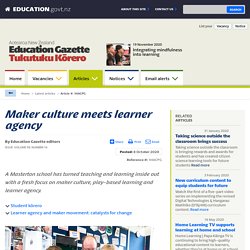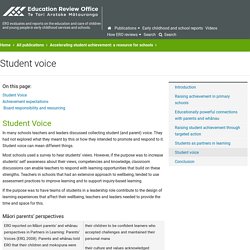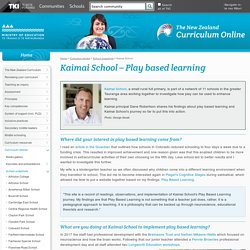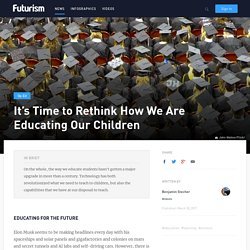

Maker culture meets learner agency – Education Gazette. By Education Gazette editors Posted: 8 October 2020 Reference #: 1HACPG A Masterton school has turned teaching and learning inside out with a fresh focus on maker culture, play-based learning and learner agency.

Callum (10), Gareth Sinton, and Levi (10) use a LEGO WeDo kit to build and code a robot with working arms. ''For us, our definition of agency is around setting goals, making plans, showing initiative, being able to self-monitor, reflect, evaluate, have a growth mindset and be confident to action change,'' says Douglas Park School principal Gareth Sinton, who believes learner agency is a disposition that can be taught. The key competencies in The New Zealand Curriculum provide rich opportunities for students to develop learner agency.
Douglas Park School has seen these capabilities start to flourish among its learners, thanks to a journey it started around five years ago. What agency looks like In tandem with the work with Mark, the staff explored what agency looked like. Student kōrero. Education Review Office. Student Voice In many schools teachers and leaders discussed collecting student (and parent) voice.

They had not explored what they meant by this or how they intended to promote and respond to it. Student voice can mean different things. Most schools used a survey to hear students’ views. However, if the purpose was to increase students’ self awareness about their views, competencies and knowledge, classroom discussions can enable teachers to respond with learning opportunities that build on these strengths. Schooling Redesigned Towards Innovative Learning SystemsOECD Book. ACTIVE LEARNING THROUGH INFINITY MAPS. Infinity Learning Maps – We activate people to help them find positive things in the current situation and use them to create an enhanced situation. Kaimai School / School snapshots / Curriculum stories. Kaimai School, a small rural full primary, is part of a network of 11 schools in the greater Tauranga area working together to investigate how play can be used to enhance learning.

Kaimai principal Dane Robertson shares his findings about play based learning and Kaimai School’s journey so far to put this into action. Photo: George Novak Where did your interest in play based learning come from? I read an article in the Guardian that outlined how schools in Colorado reduced schooling to four days a week due to a funding crisis. This resulted in improved achievement and one reason given was that this enabled children to be more involved in extracurricular activities of their own choosing on the fifth day. My wife is a kindergarten teacher so we often discussed why children come into a different learning environment when they transition to school.
“This site is a record of readings, observations, and implementation of Kaimai School's Play Based Learning journey. Peter Gray Katie (Year 6) Why 'Unlearning' Old Habits Is An Essential Step For Innovation. She said often what stands in the way of implementing change is the inability to see things beyond what they've always been in the past. In order to figure out if something needs to be unlearned to make room for change, Biller asks four questions: 1. Do I need to think, behave, do or perceive in a new way? 2. Is there previous learning that is getting in the way of my thinking, behaving or perceiving in new ways?
If something needs to be unlearned, Biller has three frameworks for implementing unlearning: changing mindsets, changing habits and changing organizations. Home - Alfie Kohn. Edutopia. A standard approach is the praise sandwich or feedback sandwich, which attempts to sidestep blame, conflict, and hurt feelings by surrounding negative feedback with positive statements. After opening with praise (“Johnny is so energetic”), the teacher brings up a specific critique (“With all that energy, he can become quite disruptive in class”), and closes on a positive note (“But he adds so much to our learning community”). While this tactic remains popular, it’s not always effective: Since people tend to remember the first and last things they hear, they focus on the praise at the ends and not the critique in the middle. The sandwich delivery softens the message and doesn’t necessarily drive it home. Edutopia. It’s Time to Rethink How We Are Educating Our Children.
In Brief On the whole, the way we educate students hasn't gotten a major upgrade in more than a century.

Technology has both revolutionized what we need to teach to children, but also the capabilities that we have at our disposal to teach. Educating for the Future Elon Musk seems to be making headlines every day with his spaceships and solar panels and gigafactories and colonies on mars and secret tunnels and AI labs and self-driving cars. However, there is one thing he did that might be even more noteworthy yet did not draw nearly as much attention.
The school’s name is Ad Astra, meaning ‘to the stars’, and seems to be based around Musk’s belief that schools should “teach to the problem, not to the tools.” Musk’s decision highlights a bigger issue, how we educate people needs to change. Parents should be the most concerned. However for parents today things have gotten even more complicated. It starts by rethinking what a school is. Blueprint For Education In The 21st Century: What if students controlled their own learning?